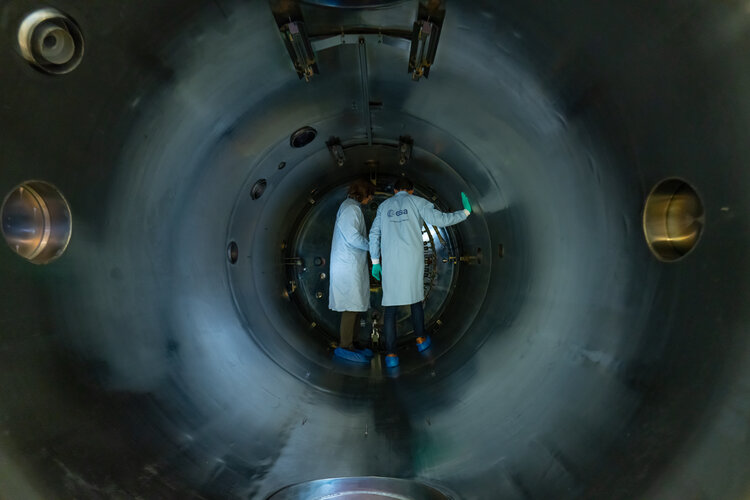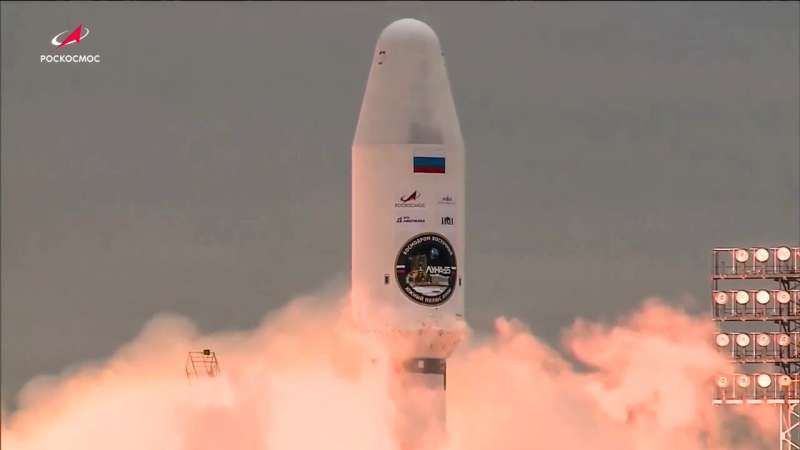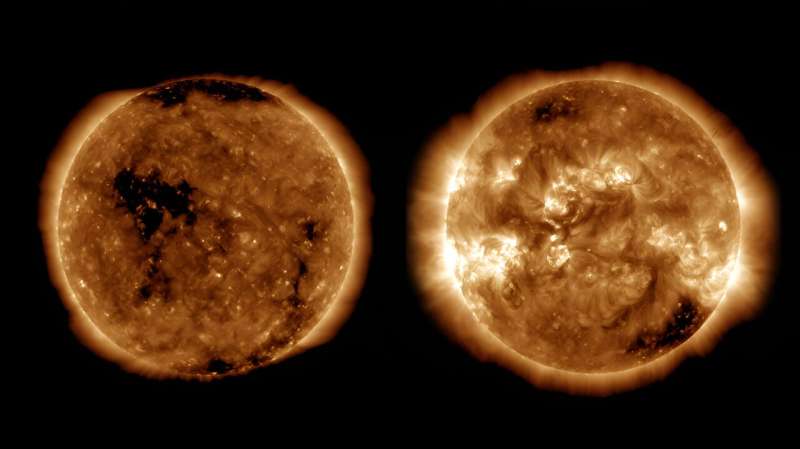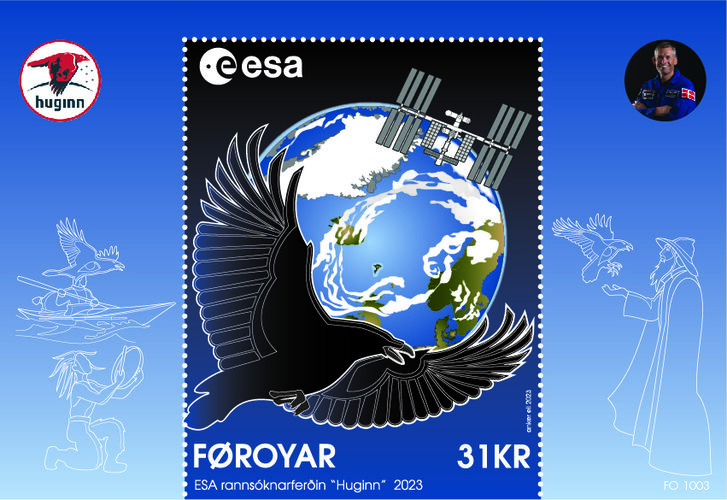
Copernical Team
Saturday, 12 August 2023 09:15
Airgain expands line of ultra-low-profile RECON13 5G rugged antenna
Los Angeles CA (SPX) Aug 11, 2023
 Airgain, Inc. (NASDAQ: AIRG), a provider of wireless connectivity solutions globally, has introduced the RECON13 5G antenna, adding to its line of rugged outdoor 5G antennas. The RECON13 is specifically tailored for fleet and public safety vehicles, marking Airgain's latest venture into ultra-low-profile antennas intended for applications needing optimal connectivity in compact spaces.
The
Airgain, Inc. (NASDAQ: AIRG), a provider of wireless connectivity solutions globally, has introduced the RECON13 5G antenna, adding to its line of rugged outdoor 5G antennas. The RECON13 is specifically tailored for fleet and public safety vehicles, marking Airgain's latest venture into ultra-low-profile antennas intended for applications needing optimal connectivity in compact spaces.
The
 Airgain, Inc. (NASDAQ: AIRG), a provider of wireless connectivity solutions globally, has introduced the RECON13 5G antenna, adding to its line of rugged outdoor 5G antennas. The RECON13 is specifically tailored for fleet and public safety vehicles, marking Airgain's latest venture into ultra-low-profile antennas intended for applications needing optimal connectivity in compact spaces.
The
Airgain, Inc. (NASDAQ: AIRG), a provider of wireless connectivity solutions globally, has introduced the RECON13 5G antenna, adding to its line of rugged outdoor 5G antennas. The RECON13 is specifically tailored for fleet and public safety vehicles, marking Airgain's latest venture into ultra-low-profile antennas intended for applications needing optimal connectivity in compact spaces.
The
Published in
News
Tagged under
Saturday, 12 August 2023 09:15
USTC scientists discover quasar-induced superbubbles
Sydney, Australia (SPX) Aug 11, 2023
 In groundbreaking research led by Prof. LIU Guilin and Prof. HE Zhicheng of the University of Science and Technology of China (USTC) under the aegis of the Chinese Academy of Sciences (CAS), the existence of superbubble pairs instigated by quasar-induced outflows in three red quasars has been confirmed. This revolutionary study has been unveiled in the journal Science Advances.
A prevailin
In groundbreaking research led by Prof. LIU Guilin and Prof. HE Zhicheng of the University of Science and Technology of China (USTC) under the aegis of the Chinese Academy of Sciences (CAS), the existence of superbubble pairs instigated by quasar-induced outflows in three red quasars has been confirmed. This revolutionary study has been unveiled in the journal Science Advances.
A prevailin
 In groundbreaking research led by Prof. LIU Guilin and Prof. HE Zhicheng of the University of Science and Technology of China (USTC) under the aegis of the Chinese Academy of Sciences (CAS), the existence of superbubble pairs instigated by quasar-induced outflows in three red quasars has been confirmed. This revolutionary study has been unveiled in the journal Science Advances.
A prevailin
In groundbreaking research led by Prof. LIU Guilin and Prof. HE Zhicheng of the University of Science and Technology of China (USTC) under the aegis of the Chinese Academy of Sciences (CAS), the existence of superbubble pairs instigated by quasar-induced outflows in three red quasars has been confirmed. This revolutionary study has been unveiled in the journal Science Advances.
A prevailin
Published in
News
Tagged under
Saturday, 12 August 2023 09:15
Pulsar Fusion forms partnership with University of Michigan for electric propulsion
London, UK (SPX) Aug 11, 2023
 Electric propulsion, with a specific focus on Hall effect thrusters, has long been recognized as a foundational technology for space missions. Recognizing its potential, the UK Space Agency has recently announced a collaboration with the Plasma dynamics and Electric Propulsion Lab at the University of Michigan, one of the premier Hall thruster research centres worldwide.
This international
Electric propulsion, with a specific focus on Hall effect thrusters, has long been recognized as a foundational technology for space missions. Recognizing its potential, the UK Space Agency has recently announced a collaboration with the Plasma dynamics and Electric Propulsion Lab at the University of Michigan, one of the premier Hall thruster research centres worldwide.
This international
 Electric propulsion, with a specific focus on Hall effect thrusters, has long been recognized as a foundational technology for space missions. Recognizing its potential, the UK Space Agency has recently announced a collaboration with the Plasma dynamics and Electric Propulsion Lab at the University of Michigan, one of the premier Hall thruster research centres worldwide.
This international
Electric propulsion, with a specific focus on Hall effect thrusters, has long been recognized as a foundational technology for space missions. Recognizing its potential, the UK Space Agency has recently announced a collaboration with the Plasma dynamics and Electric Propulsion Lab at the University of Michigan, one of the premier Hall thruster research centres worldwide.
This international
Published in
News
Tagged under
Saturday, 12 August 2023 09:15
Mars exploration reveals evidence of life-conducive environment
Paris, France (SPX) Aug 11, 2023
 Mars, often dubbed the 'Red Planet', has long been a focal point for scientists in the quest to uncover extraterrestrial life. Unlike Earth, Mars' surface is not subjected to the perpetual shifting and renewing influences of plate tectonics. This lack of tectonic activity has bequeathed Mars with expanses of land showcasing remnants of fossil rivers and lakes that date back billions of years.
Mars, often dubbed the 'Red Planet', has long been a focal point for scientists in the quest to uncover extraterrestrial life. Unlike Earth, Mars' surface is not subjected to the perpetual shifting and renewing influences of plate tectonics. This lack of tectonic activity has bequeathed Mars with expanses of land showcasing remnants of fossil rivers and lakes that date back billions of years.
 Mars, often dubbed the 'Red Planet', has long been a focal point for scientists in the quest to uncover extraterrestrial life. Unlike Earth, Mars' surface is not subjected to the perpetual shifting and renewing influences of plate tectonics. This lack of tectonic activity has bequeathed Mars with expanses of land showcasing remnants of fossil rivers and lakes that date back billions of years.
Mars, often dubbed the 'Red Planet', has long been a focal point for scientists in the quest to uncover extraterrestrial life. Unlike Earth, Mars' surface is not subjected to the perpetual shifting and renewing influences of plate tectonics. This lack of tectonic activity has bequeathed Mars with expanses of land showcasing remnants of fossil rivers and lakes that date back billions of years.
Published in
News
Tagged under
Saturday, 12 August 2023 09:15
GAO affirms NASA's decision on Intuitive Machines' $719M lunar contract
Los Angeles CA (SPX) Aug 11, 2023
 In a recent move, the U.S. Government Accountability Office (GAO) has corroborated NASA's evaluation of the OMES III proposals, which subsequently resulted in a significant award to Intuitive Machines. The nod from GAO further reinforces the confidence in the selection process.
The contract, a hefty five-year deal valued at up to $719 million, was awarded to Space and Technology Solutions.
In a recent move, the U.S. Government Accountability Office (GAO) has corroborated NASA's evaluation of the OMES III proposals, which subsequently resulted in a significant award to Intuitive Machines. The nod from GAO further reinforces the confidence in the selection process.
The contract, a hefty five-year deal valued at up to $719 million, was awarded to Space and Technology Solutions.
 In a recent move, the U.S. Government Accountability Office (GAO) has corroborated NASA's evaluation of the OMES III proposals, which subsequently resulted in a significant award to Intuitive Machines. The nod from GAO further reinforces the confidence in the selection process.
The contract, a hefty five-year deal valued at up to $719 million, was awarded to Space and Technology Solutions.
In a recent move, the U.S. Government Accountability Office (GAO) has corroborated NASA's evaluation of the OMES III proposals, which subsequently resulted in a significant award to Intuitive Machines. The nod from GAO further reinforces the confidence in the selection process.
The contract, a hefty five-year deal valued at up to $719 million, was awarded to Space and Technology Solutions.
Published in
News
Tagged under
Friday, 11 August 2023 12:05
Week in images: 07-11 August 2023

Week in images: 07-11 August 2023
Discover our week through the lens
Published in
News
Tagged under
Friday, 11 August 2023 06:55
A rocket with a lunar landing craft blasts off on Russia's first moon mission in nearly 50 years

Published in
News
Tagged under
Friday, 11 August 2023 07:44
After 17 years, NASA's STEREO-A spacecraft makes its first Earth flyby

On August 12, 2023, NASA's STEREO-A spacecraft passes between the sun and Earth, marking the first Earth flyby of the nearly 17-year-old mission. The visit home brings a special chance for the spacecraft to collaborate with NASA missions near Earth and reveal new insights into our closest star.
Published in
News
Tagged under
Thursday, 10 August 2023 12:18
Putting a stamp on Huginn

A new stamp for the Huginn mission has been released, taking inspiration from the mission’s Nordic name, Huginn, it presents a colourful design with a deep history.
Published in
News
Tagged under
Friday, 11 August 2023 04:49
Virgin Galactic rockets its first tourist passengers into space
Washington (AFP) Aug 10, 2023
 Virgin Galactic launched its first tourist passengers into the weightlessness of space Thursday, the culmination of a nearly two-decade commercial pursuit, the company said.
The three passengers - Jon Goodwin, Keisha Schahaff, and her teenage daughter Anastatia Mayers - floated gravity-free through the Virgin spacecraft about 45 minutes after taking off.
"They are officially astronauts
Virgin Galactic launched its first tourist passengers into the weightlessness of space Thursday, the culmination of a nearly two-decade commercial pursuit, the company said.
The three passengers - Jon Goodwin, Keisha Schahaff, and her teenage daughter Anastatia Mayers - floated gravity-free through the Virgin spacecraft about 45 minutes after taking off.
"They are officially astronauts
 Virgin Galactic launched its first tourist passengers into the weightlessness of space Thursday, the culmination of a nearly two-decade commercial pursuit, the company said.
The three passengers - Jon Goodwin, Keisha Schahaff, and her teenage daughter Anastatia Mayers - floated gravity-free through the Virgin spacecraft about 45 minutes after taking off.
"They are officially astronauts
Virgin Galactic launched its first tourist passengers into the weightlessness of space Thursday, the culmination of a nearly two-decade commercial pursuit, the company said.
The three passengers - Jon Goodwin, Keisha Schahaff, and her teenage daughter Anastatia Mayers - floated gravity-free through the Virgin spacecraft about 45 minutes after taking off.
"They are officially astronauts
Published in
News
Tagged under

